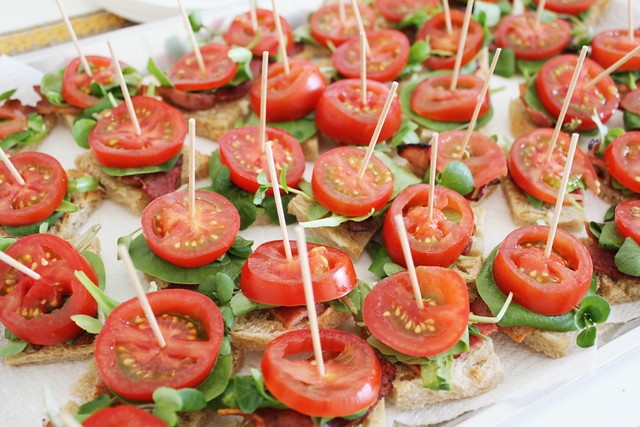











The most formal training I'd ever had in cooking was in seventh grade during my home economics class where we learned how to make pancakes and fry an egg. Something obviously didn't stick because it took fifteen years to become interested in taking another food related course.
This past weekend I spent the day at the new lab kitchen of London Cuisine in Southwark. I found them online during the Christmas break after getting frustrated about not understanding the basics. Like, why does my oil always burn? What does all that steam mean - good or bad? I know it may sounds ridiculous to you long-time chefs but that's where I was at. Totally clueless. While trial and error is often the best way to learn new things, I didn't love that approach when food was involved. Getting things wrong kept resulting in a big wast of money and leaving us with a bowl of cereal for dinner. So, the way I looked at it was this one time investment in a class would save us money in the long run by giving me the confidence to cook well and more often at home ... Joe can't do it all of the time! Actually, I was perfectly fine with him doing all of the cooking but now I want in.
The class was called "Cooking For Blokes" but of course, ladies are welcome. It was a small group of five and the men who were there had been given the class as a Christmas gift. We started at 10am and had two separate cooking sessions with detailed instructions and demonstrations before each one. It was a nice surprise to realize that we'd be making actual dishes and not simply learning to boil water! Those basics and principles were taught, however, through the preparation of each dish and open Q&A's throughout the day. We made nine items ranging from parmesan biscotti to french potato soup but my personal favorites were the neapolitan peasant pasta, smoked mackerel and herb fishcakes, and mediterranean tabelleh. Everything was super easy to prepare and to cook but what made all of the difference was understanding the methods to achieve the best consistency, texture, and get the most flavor.
Here are some of the tips I learned...
• never put oil into a cold pan. to get the most out of your oil before it reaches its smoking point you should always heat the pan first, add any high moisture ingredients and then add your oil. otherwise you waste the oil's lifespan and effectiveness for flavor.
• always add dry herbs last and cruch/rub in fingers before doing so to release essential oils.
• there's no need to add oil to water when boiling pasta nor after the pasta has been drained. instead, drain the pasta and immediately run cold water over it to stop it from cooking. then place back in dry pot to keep warm.
• salt burns before fat so unsalted butter is best when cooking with it.
• flour should be high in protein for the most flavor. supermarket brands are often low on this so it's best to compare when shopping.
• the thinner the cucumber the better because the wider they get, the more water content they have (less flavorfull)
• not one oil can/should do it all: olive oil is best for everyday cooking, virgin olive oil is best with indirect heat but should be not directly cooked with in a pan, and extra virgin olive - which has the lowest smoking point - should only be used for on-the-plate coating once ready to be served.
Did any of these surprise you? Agree or disagree? I'd love to hear from you seasoned cooks out there ... I've got more confidence now but I know that there's still a lot to learn!












